Corfu: Where Melodies Echo Through Time
Imagine an island where the breeze carries more than just the scent of the sea – it carries the melodies of hundreds of music associations, dozens of orchestras, and countless bands. This is Corfu, the musical heart of Greece, where the very air seems to harmonize with the soulful sounds of music. But the island’s musical charm doesn’t stop at instruments and performances – even the way its natives speak is musical, their conversations woven with a melodic lilt that turns ordinary words into a lyrical symphony.
Beyond its captivating musical tapestry, Corfu stands proudly as the third most popular Greek island for tourists, following in the footsteps of the iconic Santorini and Crete. With over a million visitors each year, it’s easy to see why. But what sets Corfu apart isn’t just its stunning landscapes; it’s a haven where music is an integral part of everyday life.
The island’s musical journey stretches back through the annals of history, with notable milestones that have shaped its harmonious identity. Corfu was the cradle of Greece’s first-ever philharmonic orchestra, as well as the home to the country’s inaugural school of fine arts. Today, Corfu boasts a remarkable seventeen philharmonic orchestras – a testament to its deep-rooted love affair with music.
The musical magic that thrives in Corfu is intertwined with its rich historical tapestry. During the four-hundred-year Venetian rule from 1388 to 1797, Corfu soaked up the cultural influences of Europe more than its mainland counterparts. While the rest of Greece was immersed in Ottoman rule, Corfiots enjoyed the finer aspects of European life, contributing to the island’s unique and vibrant cultural identity.
Perhaps one of the most captivating narratives in Corfu’s musical tale is its pivotal role in introducing opera to Greek soil. In 1733, the Venetians ingeniously transformed a local “Loggia” hall into a grand theater, hosting the first-ever opera performance in Greece. Even after Greece’s unification, this harmonious tradition endured, with opera performances continuing at the venue for years to come.
The Philharmonic Society of Corfu
Fast forward to 1840, and the Philharmonic Society of Corfu was founded. Over the years, this society has weathered the tides of time and continues to thrive, a living testament to the island’s enduring love for music. The very essence of Corfu is steeped in melody, as conversations flow like verses of a song and melodies are woven into the fabric of everyday life.
The rise of philharmonic orchestras and bands on Corfu was part of a larger European trend in the 19th century, as music associations sprung up across the continent. Thanks to the island’s sons and daughters studying in European universities, Corfiots became an integral part of this musical revolution. The island’s philharmonic bands shine most brightly during the vibrant Easter celebrations when their enchanting performances captivate both locals and visitors alike.
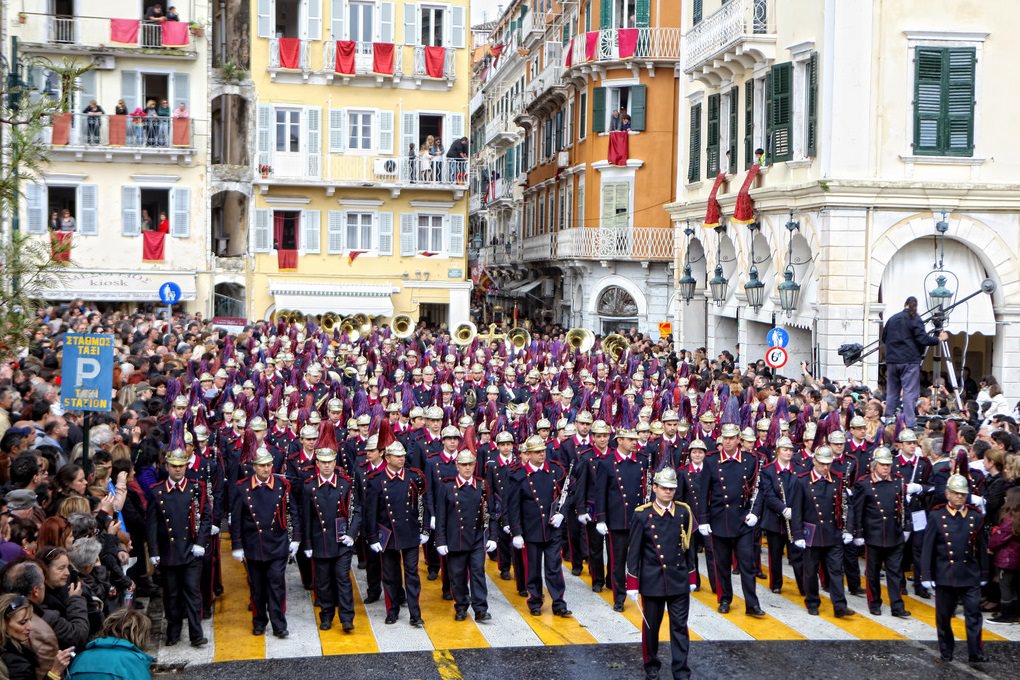

The birth of philharmonic orchestras on Corfu traces back to 1837 when Queen Victoria’s edict prohibited the British Army Band from participating in Orthodox events. This inspired the birth of the Corfiot Philharmonic Orchestra, known as the “Philharmonic Society of Corfu.” Established on September 12, 1840, its founding members included Spyridon Xyndas, Petros Kouartanos, Ioannis Kallonas, and Nikolaos-Halkiopoulos Mantzaros. Foreign residents fondly referred to it as “La Banda Grecca,” and the society’s uniforms were adorned in blue and red – the island’s iconic colors.
The legacy of Corfu musicians
The legacy of Spyridon Xyndas is a dazzling gem in Corfu’s musical crown. He composed the first Greek opera, a remarkable feat that echoed through time. Yet, it was his fellow band member, Nikolaos Halkiopoulos-Mantzaros, who gifted Greece with its National Anthem. Setting Dionysios Solomos’ stirring poem “Hymn to Liberty” to music in 1830, Mantzaros left an indelible mark on Greece’s cultural landscape.
Mantzaros’s musical legacy extended beyond symphonies and compositions; he dedicated much of his life to teaching music and nurturing the talents of future generations. The echoes of his influence continue to resonate in the island’s educational institutions and musical aspirations.
Mantzaros Philharmonic Society
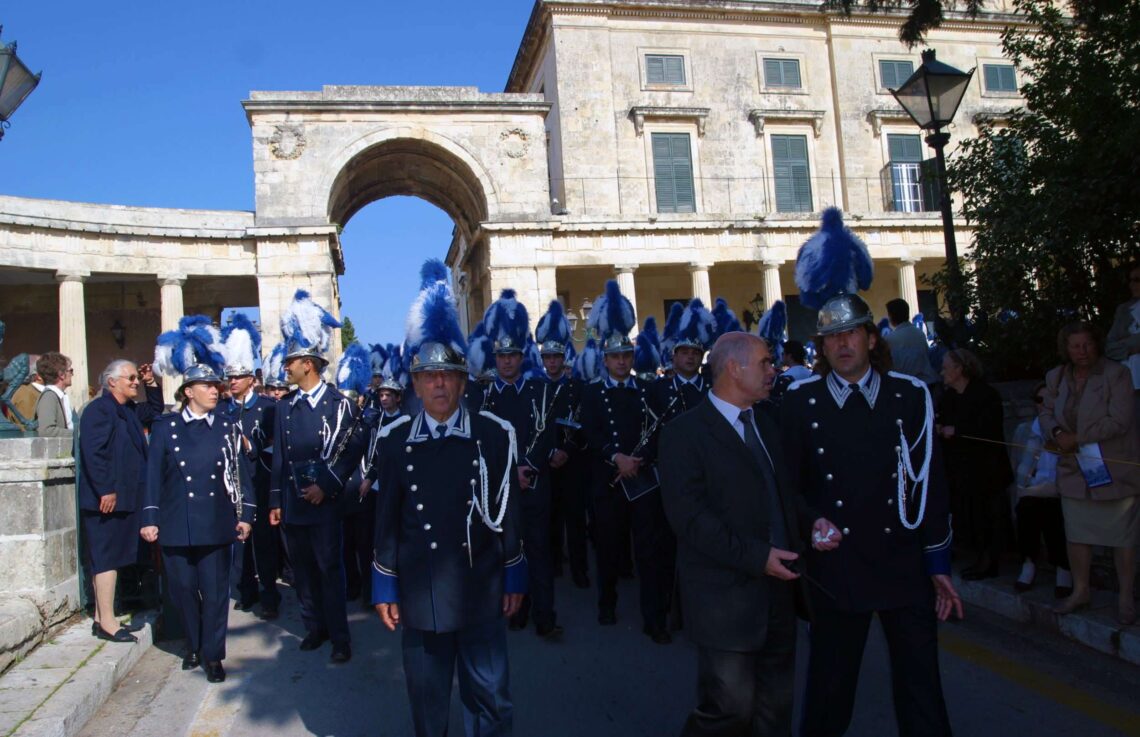

In 1890, the Mantzaros Philharmonic Society was born, weaving its own musical chapter into Corfu’s story. With blue and white uniforms that reflect Greece’s hues, this society has played a significant role in shaping the island’s musical landscape for over a century.
Kapodistrias Philharmonic Association of Corfu
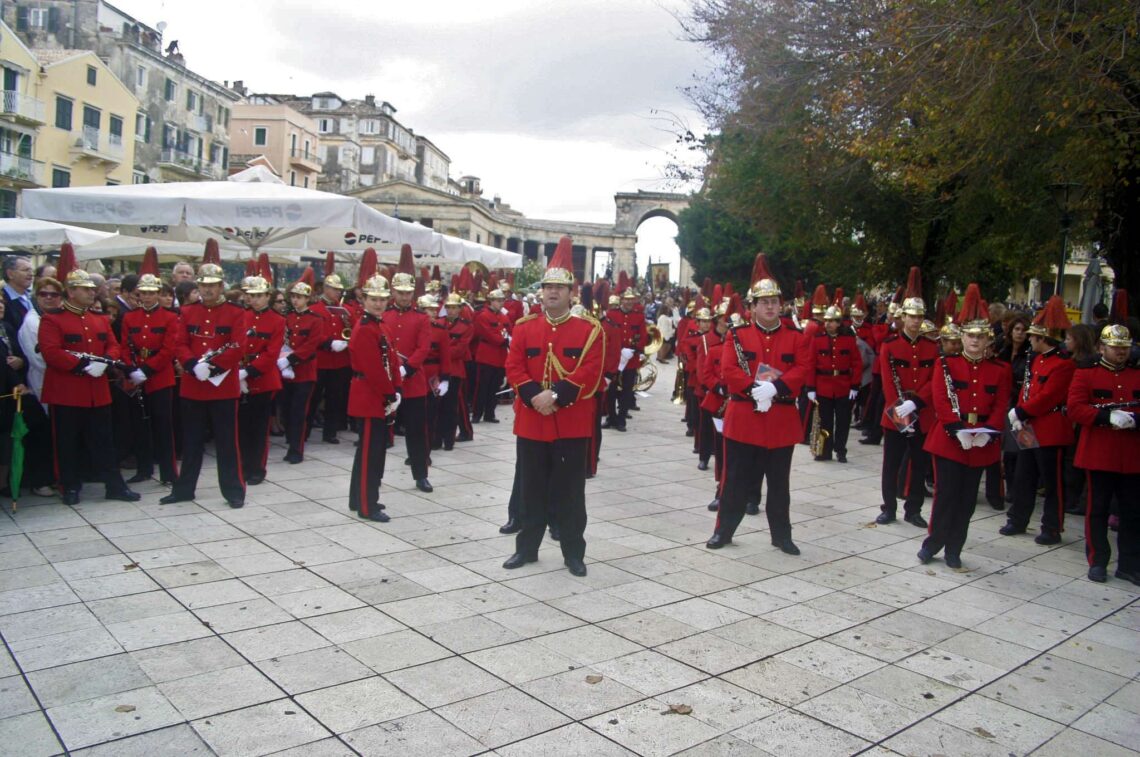

And the musical journey didn’t end there. In 1980, the Kapodistrias Philharmonic Association of Corfu emerged, embarking on a mission to enrich the island’s musical realm. Making its debut appearance on New Year’s Eve of 1981, this association swiftly became one of Corfu’s largest cultural and musical education centers. Its tireless efforts have nurtured a new generation of musicians, contributing to Greece’s evolving musical landscape.
Corfu’s philharmonic bands
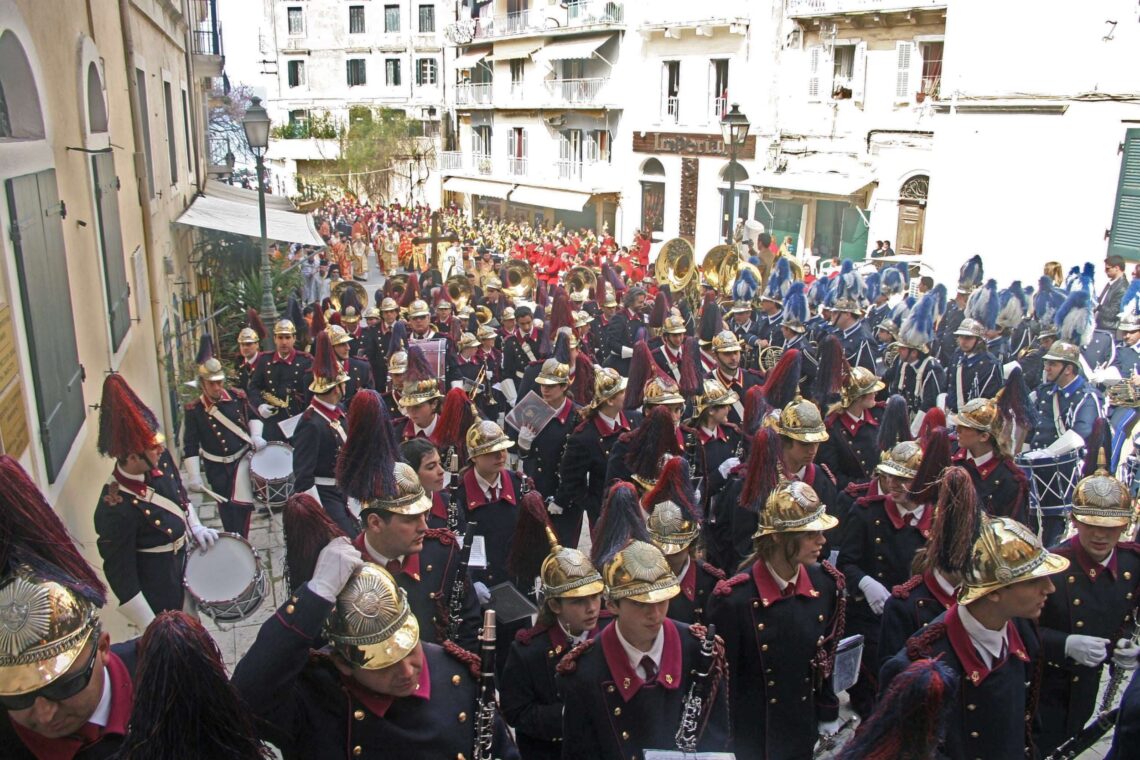

The musicians who dedicate their hearts to Corfu’s philharmonic bands are often not professionals, but their passion for music is boundless. They become mentors, guiding younger generations toward becoming accomplished soloists, conductors, and teachers in Greece’s vibrant musical scene.
It’s awe-inspiring to think that an island with a population of just 120,000 residents hosts more than twenty major music education organizations, accompanied by a multitude of music-related clubs. The School of Music under the Ionian University’s auspices further underscores the island’s commitment to nurturing musical talent. Music is, indeed, interwoven with Corfu’s soul, playing a profound role in shaping its rich cultural identity.
The ‘Kantadoroi’ of Corfu
As you stroll through the charming streets of Corfu, an unexpected symphony captures your senses. The melodic notes of guitars, accordions, and a choir fill the air, leading you to a delightful surprise. It’s as if the entire neighborhood has joined in song, infusing the atmosphere with celebration. Is it a special event or a festivity? The answer lies in the captivating world of Corfu’s Kantadori, or perhaps better known as the ‘Troubadours.’
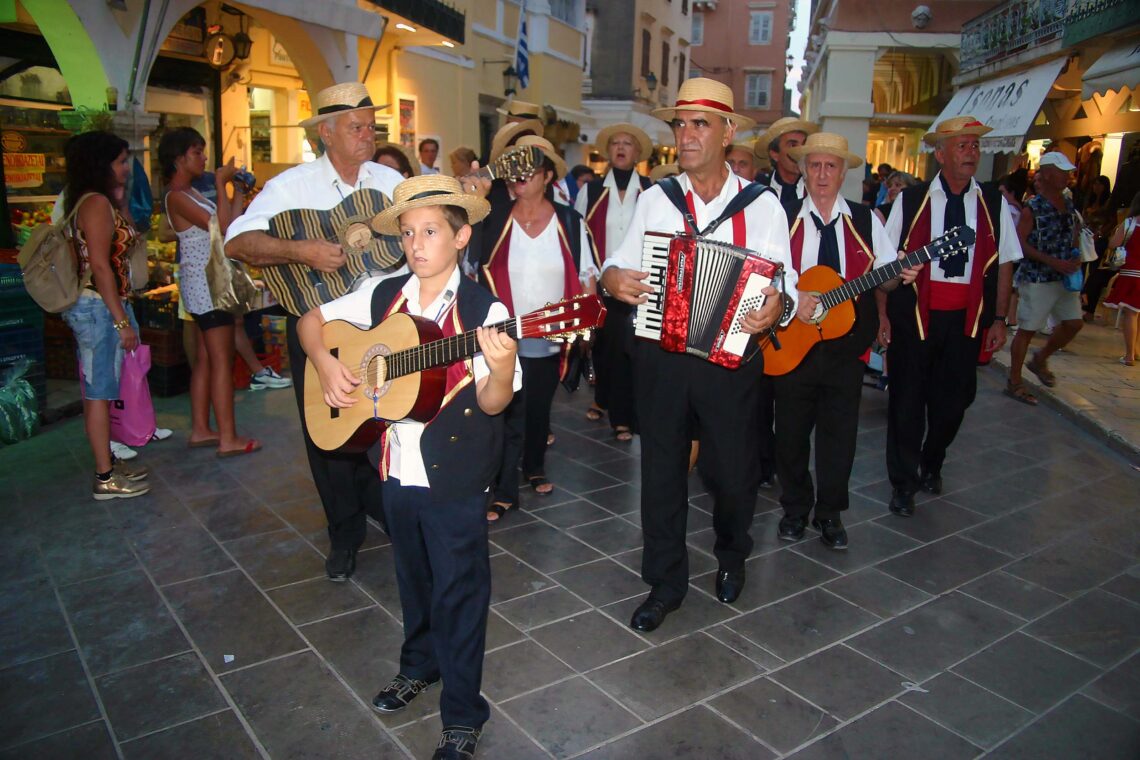

Dressed in traditional costumes, these groups of people take to the cobblestone streets of the old town, offering spontaneous and enchanting moments of entertainment to both residents and visitors. Their music and songs create an atmosphere of wonder and joy, not just within the cantonments but also at weddings, festivals, and a variety of island events. They are an integral part of Corfu’s cultural heritage, weaving melodies that echo across time.
Corfu, often dubbed the ‘most musical island in Greece,’ holds a unique position due to its historical influences and Venetian past. The island’s musical tapestry is a vibrant blend of Western harmony and Ionian charm, a result of its exposure to the art, literature, and music of the West. This influence gave birth to a distinctive style that is both familiar and uniquely Corfiot.
At the heart of this musical legacy lies the chant, an urban folk song that resonates with the spirit of Corfu. The chants feature Western polyphony and are performed by groups rather than soloists. Created by composers from the Ionian School of Music and the Modern Greek National School of Music, these melodies are often accompanied by guitars and mandolins or sung a cappella. The influence of Italian culture is evident in the very name, derived from the Italian verb ‘cantare,’ meaning ‘I sing.’
Intriguingly, Corfu’s philharmonic bands take center stage during Easter celebrations, a testament to the island’s profound connection with music. As Greece’s third most popular tourist destination, Corfu welcomes over a million visitors annually, drawn not only by its scenic beauty but also by its musical charisma. From the romantic serenades of yesteryears to the dynamic Kantadori of today, music continues to enrich the island’s culture and heritage.
As the sun sets over Corfu’s picturesque landscapes, the Troubadours of Love emerge, evoking the spirit of medieval minstrels. Like their European counterparts, these wandering performers bring folk music to life, weaving stories of love, beauty, and the sea. Their melodies resonate with the heart, capturing the essence of a bygone era while enchanting modern audiences.
In their traditional Corfiot attire, they strum guitars, play accordions, and sing in harmony, creating an atmosphere that transports you to a world where love is idealized and celebrated. Much like the troubadours of old, these modern minstrels channel emotions through their music, sharing stories of courtly love and the beauty of life.
Today, Corfu’s musical heritage remains a treasure trove of melodies and memories, rooted in its history and culture. The Kantadori, or Troubadours, continue to serenade the island with their soul-stirring songs, bridging the gap between past and present. So, as you wander through Corfu’s enchanting streets, listen for the echoes of the Troubadours’ melodies and let yourself be transported to a world where music weaves tales of love, joy, and the timeless spirit of this idyllic Greek island.”
Wrapping Up
As the sun dips below the horizon, casting a warm, golden glow over the island, the melodies of Corfu’s past, present, and future continue to dance through the air.
Corfu’s music scene is a vibrant medley of Greek and Byzantine essence, infused with the flavors of Venetian charm and English flair.
Imagine serenades resonating through the alleys, carrying tales of love and tradition. Then, switch to the lively beats of popular tunes that effortlessly set your feet tapping. But hold on, it doesn’t stop there. Let the sounds of religious hymns take you to a place of reverence and soulful reflection. And just when you think you’ve heard it all, folk songs weave stories of ancient landscapes and shared experiences.
So, whether you’re wandering the charming cobblestone streets or relaxing by the sea, Corfu’s music will serenade you with its rich history, cultural fusion, and sheer musical magic. It’s a journey through time and sound that’s sure to leave you enchanted and inspired.”





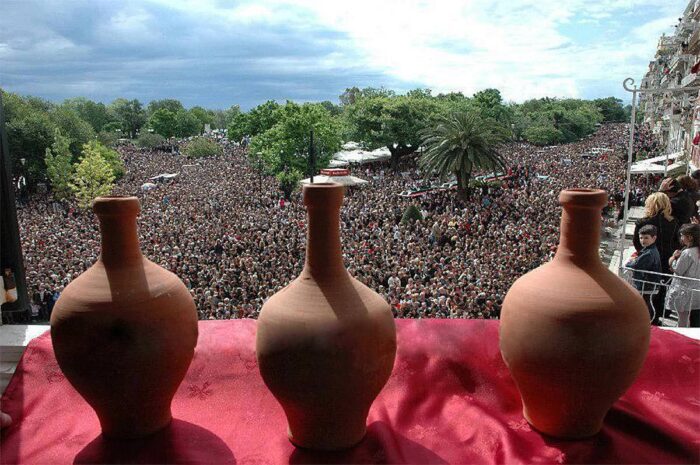


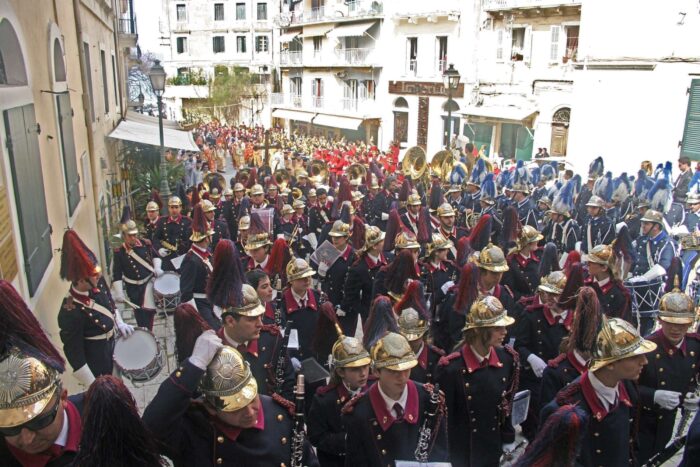
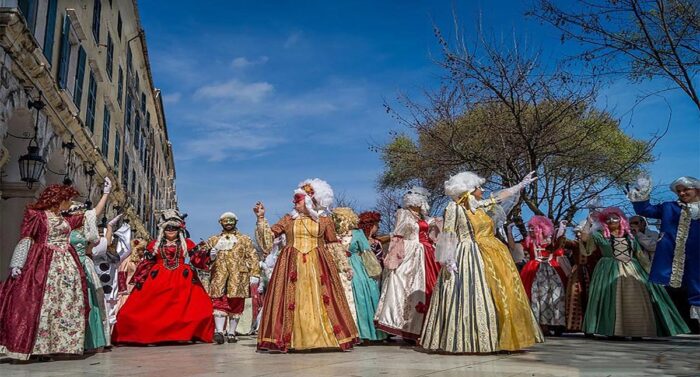
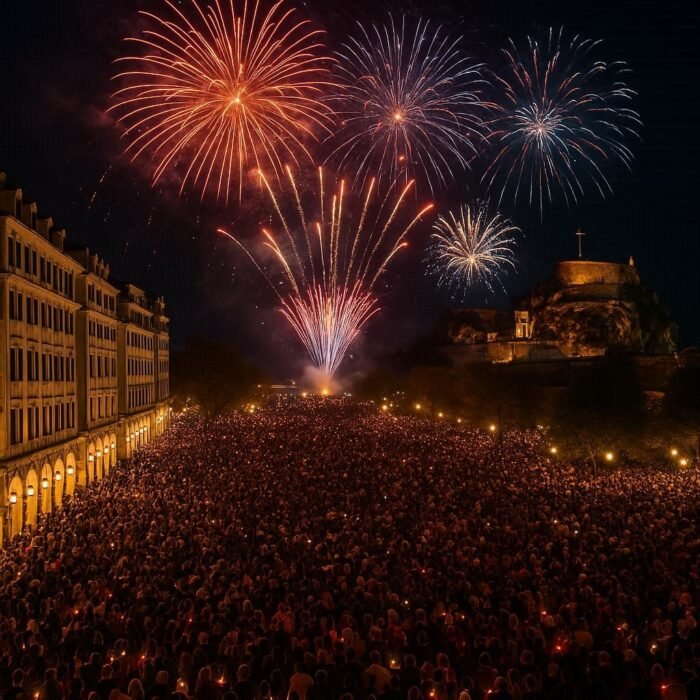
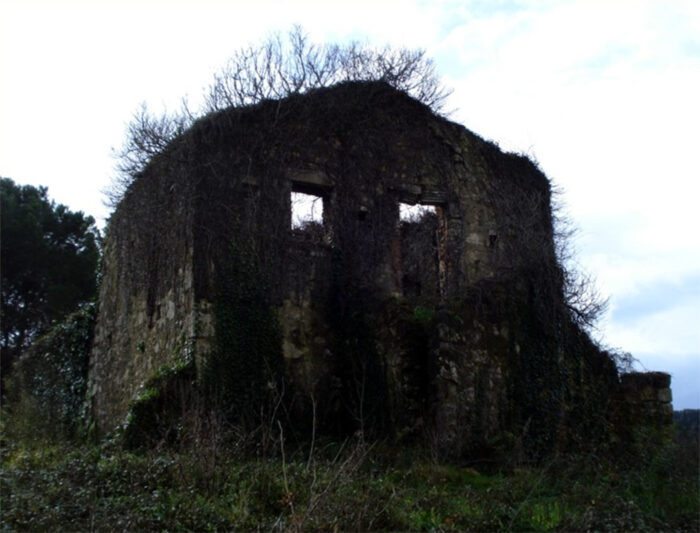
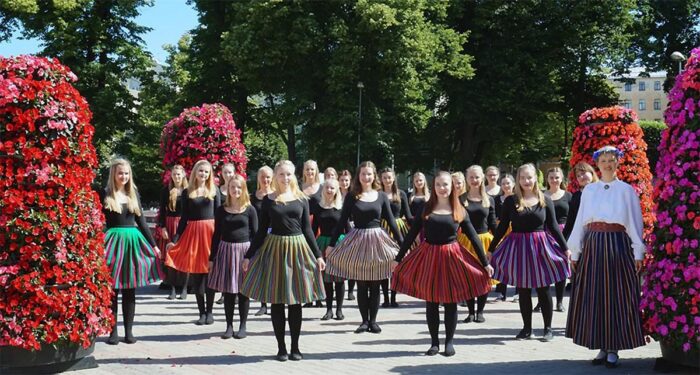
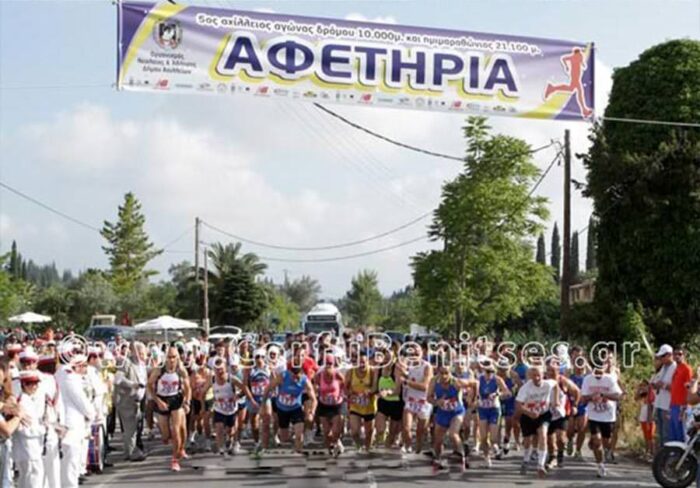
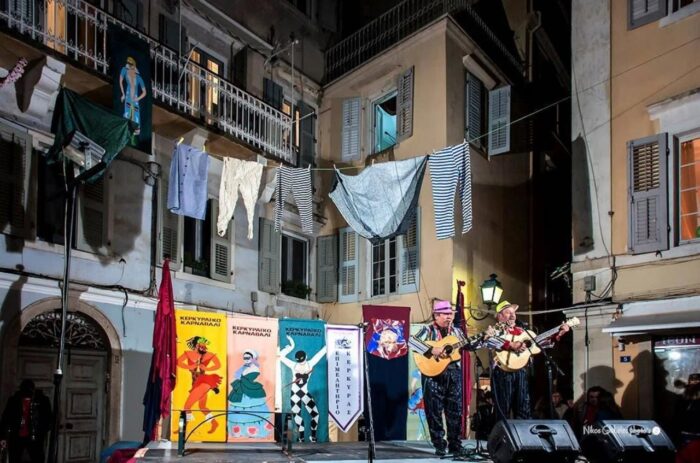

Comments